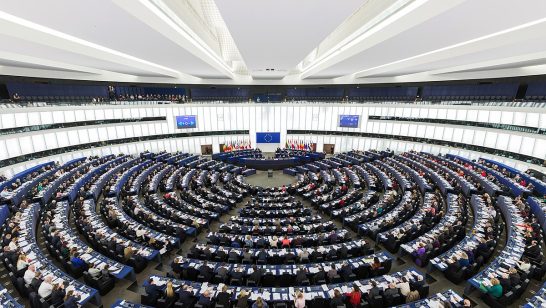
On 16th September 2022, as a result of Russia’s invasion of Ukraine, the Russian Federation ceased to be a High Contracting Party to the European Convention on Human Rights. Since the expulsion, the stability and effectiveness of the European Court of Human Rights (ECtHR) system have been of paramount importance to the remaining 46 Member States of the Council of Europe (CoE). At present, this effectiveness is being compromised by the obstacles faced in the execution of final judgements of the Court, such as non-compliance, significant delays in executing decisions, and inadequate implementation. In 2021, the total number of new cases before the Committee of Ministers – tasked with enforcing the judgments – was 1,379, with the total number of pending cases stockpiling to 5,533. In comparison, in 2021, the Court delivered just 1,105 judgments. Here we suggest four ways for how the efficiency of the CoE can be improved to safeguard a system that is already under significant pressure.
Financial sanctions
One of the possible solutions to stimulate compliance is to introduce pecuniary sanctions against states for lengthy non-implementation of the decisions of the Court and non-compliance. A proposal to introduce a system of astreintes – daily fines for a delay in the performance of a legal obligation – was originally put forward by PACE in 2000. The Committee responded to the 2000 recommendation by suggesting that the idea of financial penalties required a “very thorough examination”. The Committee further stressed that “persistent failure to execute judgements already carries financial consequences” as states are required to pay just satisfaction to every subsequent applicant affected by an earlier unrectified violation of the Convention. According to the Committee, no further action against the state’s non-compliance is necessary, as the need to pay just satisfaction to every single applicant would push the state to act (e.g., by making the national law in question compliant with the Convention).
This attitude is unsatisfactory. For instance, before its expulsion, Russia was amongst the Member States with the highest case count, yet the damages and costs to the numerous successful applicants were dutifully paid. Therefore, the volume of payments ordered does not always translate into steps towards compliance.
The Committee thus suggests that it is for individuals whose rights are being persistently violated to put pressure on their governments to achieve enforcement. Due to its unwillingness to deal with the political consequences of imposing financial sanctions, the Committee is refusing to safeguard the rights mutually recognised by and contracted to Member States. Following this logic, justice is to be done at the expense of the victims, not the perpetrating states.
Due to its unwillingness to deal with the political consequences of imposing financial sanctions, the Committee is refusing to safeguard the rights mutually recognised by and contracted to Member States. Nikita Gryazin and Julia Glukhikh
Leaving ethical implications aside, such an approach is not working in practice: if states are not willing to comply with the initial decisions of the Court and thus prevent further violations, what would stop them from not implementing subsequent similar decisions?
The imposition of financial damages ought to be discretionary, with particular regard given to the potential financial difficulties that the state in question may incur following the decision of the Court. To avoid any political bias, it seems more reasonable to delegate the powers of financial sanctions to the Court rather than the Committee.
The Committee will be obligated to supervise the execution of the judgement and, in case of continuing non-compliance, may administer the financial sanction ordered by the Court. Member States should be able to appeal against the decision but solely on the basis of financial difficulty associated with the sanction.
Giving ECHR rights jus cogens status
The process of formulating human rights at the international level has been practically completed. As a result, the central question of human rights law today revolves around implementing the legal provisions developed over the last seventy years. The unsatisfactory standards of human rights protection have prompted a discussion on enforcement mechanisms. Currently, sovereignty is the primary cause of preventing the effective implementation of human rights and compliance with the decisions of supranational courts, such as the ECtHR. The prerogative powers of territorial jurisdiction, state immunity, and non-interference in domestic affairs, used by states to protect their interests, are examples of the state sovereignty doctrine. The doctrine, a long-established customary form of law, became essential to the UN Charter: it was designed to protect societies from the aggressive expansionary ambitions of totalitarian regimes after World War II.
Currently, sovereignty is the primary cause of preventing the effective implementation of human rights and compliance with the decisions of supranational courts, such as the ECtHR. Nikita Gryazin and Julia Glukhikh
However, the doctrine of state sovereignty should not prevent the effective implementation of human rights. Jus cogens is a super customary legal norm from which no derogation is permitted and that prevails over state sovereignty. Given its high position within the hierarchy of international legal norms – including in respect of some human rights (protection against torture, genocide, crimes against humanity, etc.) – the jus cogens norm can strengthen the ECHR rights protection. States have a primary obligation under international law to render void all legal consequences arising from a breach of jus cogens norms and prevent further violations. The impact of norms capable of overriding state sovereignty should be used to improve compliance with the decisions by the EctHR. This would add to the already existing obligations of the Member States of the CoE to provide adequate redress to the injured parties and to prevent repetitive violations.
“Naming and shaming”
The Committee has taken steps towards encouraging parliamentary involvement in the execution and implementation of the decisions of the ECtHR. The Parliamentary Project Support Division has been organising seminars for members of parliaments and their staff on the role of implementing the standards of the Convention. However, the Parliamentary Assembly recognised its limitations amid growing structural problems such as persistent inadequate management at the national level, lack of necessary resources or political will, and even direct confrontation with the Court’s decisions. It is argued that whilst involving national parliaments is improving compliance in general, this approach may not be suitable for states with authoritarian trends as their national parliaments may not be open to dialogue.
The Committee should therefore adopt a practice of being more critical about cases of poor compliance and publicise its findings. Interestingly, a similar approach is being used by other bodies within the CoE, such as the Committee of Experts on the Evaluation of Anti-Money Laundering Measures and the Financing of Terrorism (MONEYVAL) and the European Committee for the Prevention of Torture and Inhuman or Degrading Treatment or Punishment (CPT). The “naming and shaming” approach shouldn’t be used in every case of non-compliance but only in cases of Member States’ unreasonable failure to implement a decision.
The “naming and shaming” approach shouldn’t be used in every case of non-compliance but only in cases of Member States’ unreasonable failure to implement a decision. Nikita Gryazin and Julia Glukhikh
Education
Making information about enforcement mechanisms accessible to citizens of Member States will also benefit the compliance process. First, the mechanisms give specific examples of how the Convention operates (enhancing the credibility of the system as a whole), and second, it raises citizens’ awareness of how national authorities exercise their (essentially, democratically conferred) power. The extent of internalisation should be stretched as wide as to include individual citizens (and not limited to just engaging with the national legislatures), as this will not only develop respect for human rights but also make them inherent to the people. If this information was in the public domain, it could potentially lead to political pressure on governments from the inside. Thus, the civil societies of Member States will be more encouraged to demand compliance from their respective national governments.
One of the main issues that remain problematic for the Council of Europe is the reluctance of Member States to execute judgements of the Court consistently and without delay. This significantly undermines the credibility and authority of the system as a whole. The Council of Europe should look beyond purely administrative measures to improve compliance. It should be bolder in taking the risk to become the first human rights-focused body to challenge the impasses generated by the state sovereignty doctrine in order to safeguard compliance. If this happens, it will lead to real and substantial improvement in human rights protection in Europe.
The opinions articulated above represent the views of the author and do not necessarily reflect the position of the European Leadership Network or all of its members. The ELN’s aim is to encourage debates that will help develop Europe’s capacity to address the pressing foreign, defence, and security policy challenges of our time.
Image credit: Wikimedia Commons / CherryX



